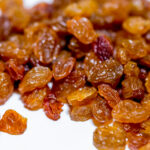Pesach Sheni is observed on Iyar 14, one month after 14 Nisan — the day before Passover when the paschal lamb was selected as a sacrifice for the holiday. This year, it takes place on April 30. It offers a second opportunity for anyone unable to participate in the first Passover celebration.
History of Pesach Sheni
Pesach Sheni can be considered the celebration of a second Passover. It is rooted in Scripture. God told the Israelites to remember the night of the Passover — when the angel of death passed any Jewish home sprinkled with lamb’s blood. The people were told to celebrate the Passover feast, bringing an offering to God. The sacrificed roasted lamb was given in God’s way on the first Passover and later the second. It was to be eaten with matzah and bitter herbs.
At the time, specific individuals could not participate in the Passover because they were considered to have become ritually impure. Some men were worried they would miss the chance to be right with God. So, they approached Moses and Aaron, who gave them instructions on what they could do. The people who were considered unclean or couldn’t reach Jerusalem (the site of the Passover) were given the opportunity for a “second chance.” They could celebrate Passover one month later on 14 Iyar.
Since the destruction of the Second Temple, Pesach Sheni is only celebrated symbolically. People only eat a piece of ‘matzah,’ or ‘unleavened bread,’ to commemorate the occasion. They remember and honor their deceased family members on the holiday, making contributions to organizations that create meaningful memorials for departed loved ones, such as hospitals, hospices, synagogues, or charities.
Pesach Sheni timeline
Crusaders from Europe capture the Holy Land.
The Crusaders massacre the non-Christian population.
Britain recognizes the Jewish people’s right to establish a home in Palestine.
Jewish refugees cannot enter Israel even after World War II.
Pesach Sheni FAQs
Do Jews marry non-Jews?
Only 2% of Orthodox Jews marry non-Jews, while 47% of non-Orthodox Jews marry non-Jews.
Are Jews racially diverse?
The population of Jews in the U.S. has become racially diverse over the years.
Are there Republican Jews?
About three-quarters of Orthodox Jews say they are Republican.
How to Observe Pesach Sheni
Eat matzah
It is customary to eat a small piece of ‘matzah’ on the holiday. You can also commemorate the tradition by omitting the ‘Tachanun,’ or ‘a supplication prayer,’ from the prayer service.
Go to the synagogue
Sermons are held in the synagogue almost every day. You can attend and participate in the prayer service to remember the tradition.
Learn more about Judaism
Conduct some research about the Jewish religion. Learn about Jewish people's beliefs, history, and teachings.
5 Facts About Jewish People
There are Jews in the U.S.
Jews make up about 2.4% of the U.S. adult population.
There are many Jews
In 2020, the Jewish population was estimated to be about 7.5 million.
U.S. Jews are not too religious
The Jews in the U.S. are considered less religious than American adults.
Jews can be liberal
Jews can be staunchly liberal and are known to favor the Democratic Party.
Jews care about Israel
About 82% of Jews in the U.S. care a lot about Israel.
Why Pesach Sheni is Important
It maintains tradition
The holiday is an old Jewish tradition. It helps to preserve the religion and its teachings.
It is educational
Prayers and sermons are held during the holiday. They teach the younger generation about ancient traditions and Jewish history.
It is charitable
During the holiday, people are encouraged to make donations. Giving to others helps make society a better place.
Pesach Sheni dates
| Year | Date | Day |
|---|---|---|
| 2024 | May 21 | Tuesday |
| 2025 | May 11 | Sunday |
| 2026 | April 30 | Thursday |
























